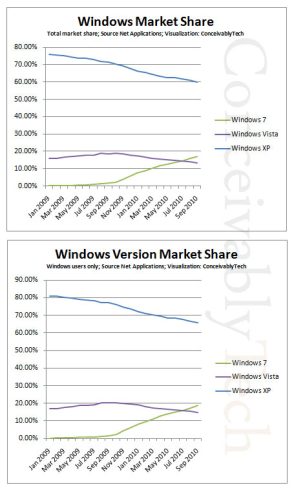After the reasonable success of Windows 7, and long after the train wreck that was Windows Vista, PC users are keeping it old school, sticking with Windows XP as their operating system of choice.
If you use a computer for anything other than gaming or to see how many hertz you can eek out of the latest Intel CPU, you know the pain of change. Change means uncertainty, and the one thing people want from a device their business or personal communications rely on is certainty.
As a nerd, Windows 7 is a modern, attractive and capable OS, but depending on the task XP is still more than enough for the majority of users.
Since the release of Windows 7, the
install base of Windows XP has dropped only 10%, to 60%.
XP is actually a victim of it’s own circumstance. Microsoft kept XP around for five years before introducing Vista, a largely unsuccessful release that scared most regular users. While Vista floundered, XP gained strength, making it all the way to Service Pack 3.
Microsoft clearly now sees the value in regular and feature-rich updates, keeping users motivated to get to the latest updates. Lets just hope the quality remains.

